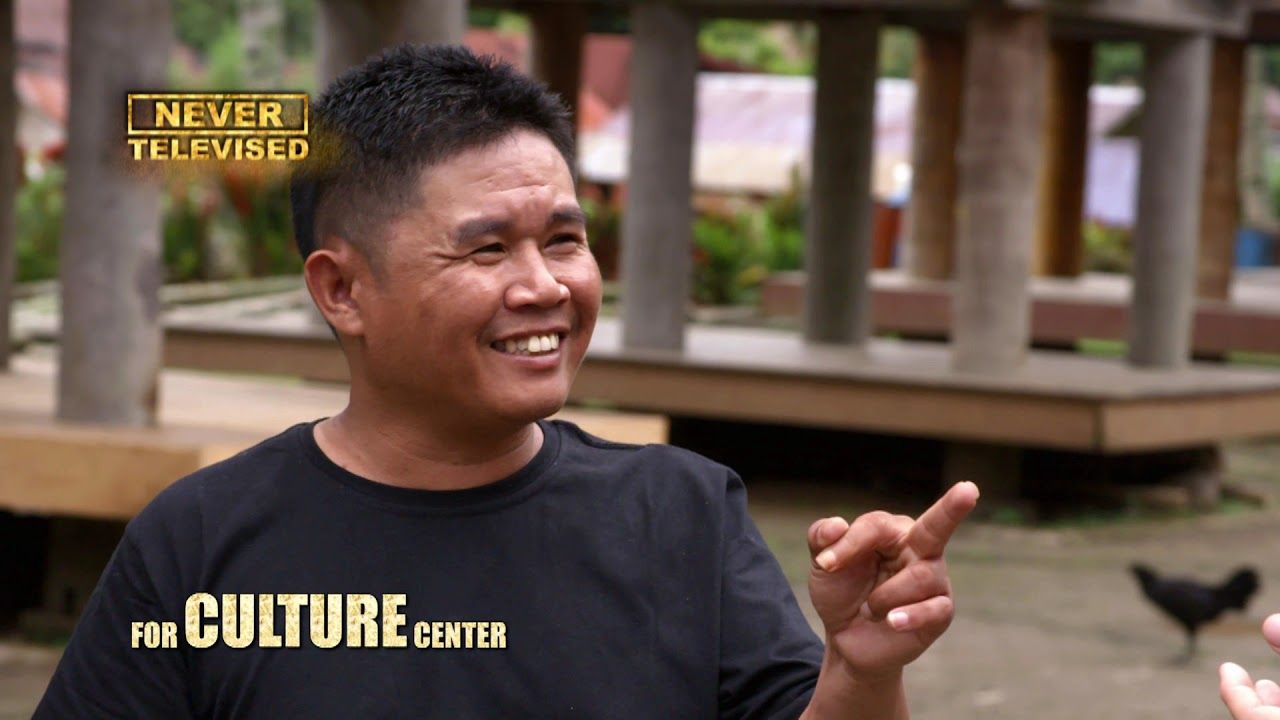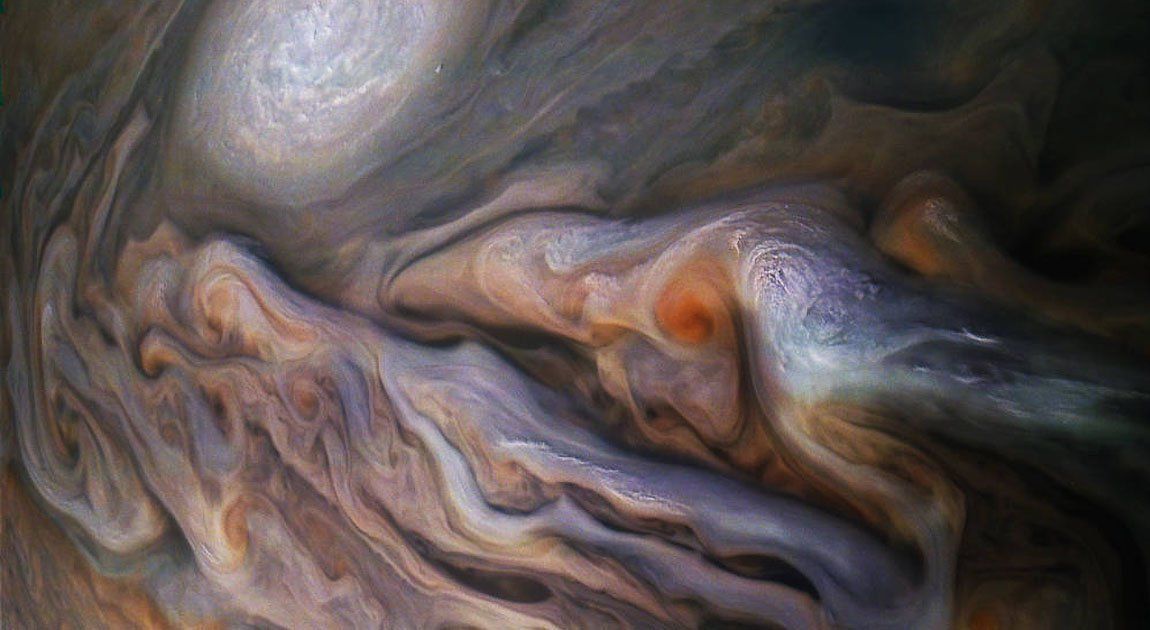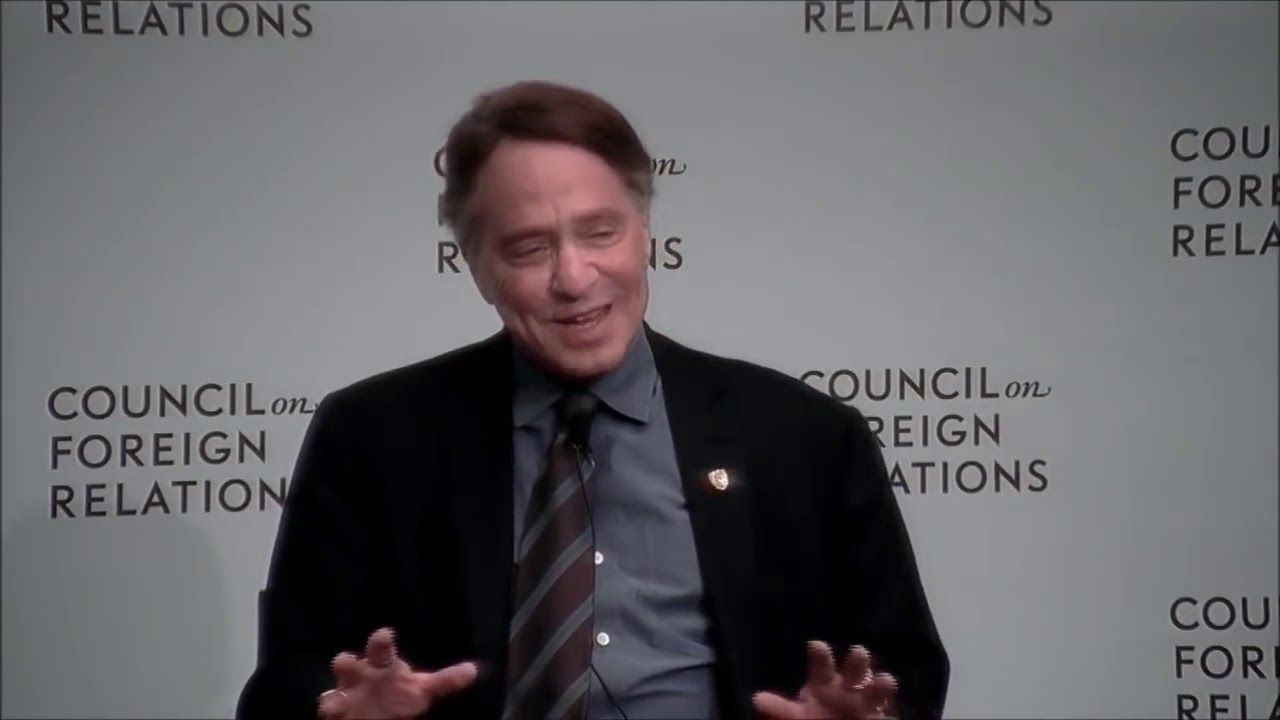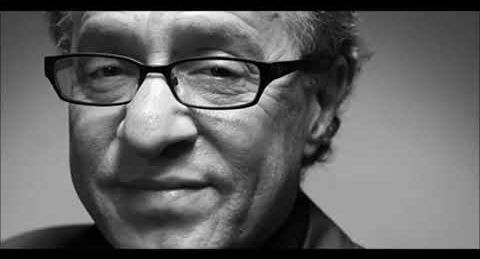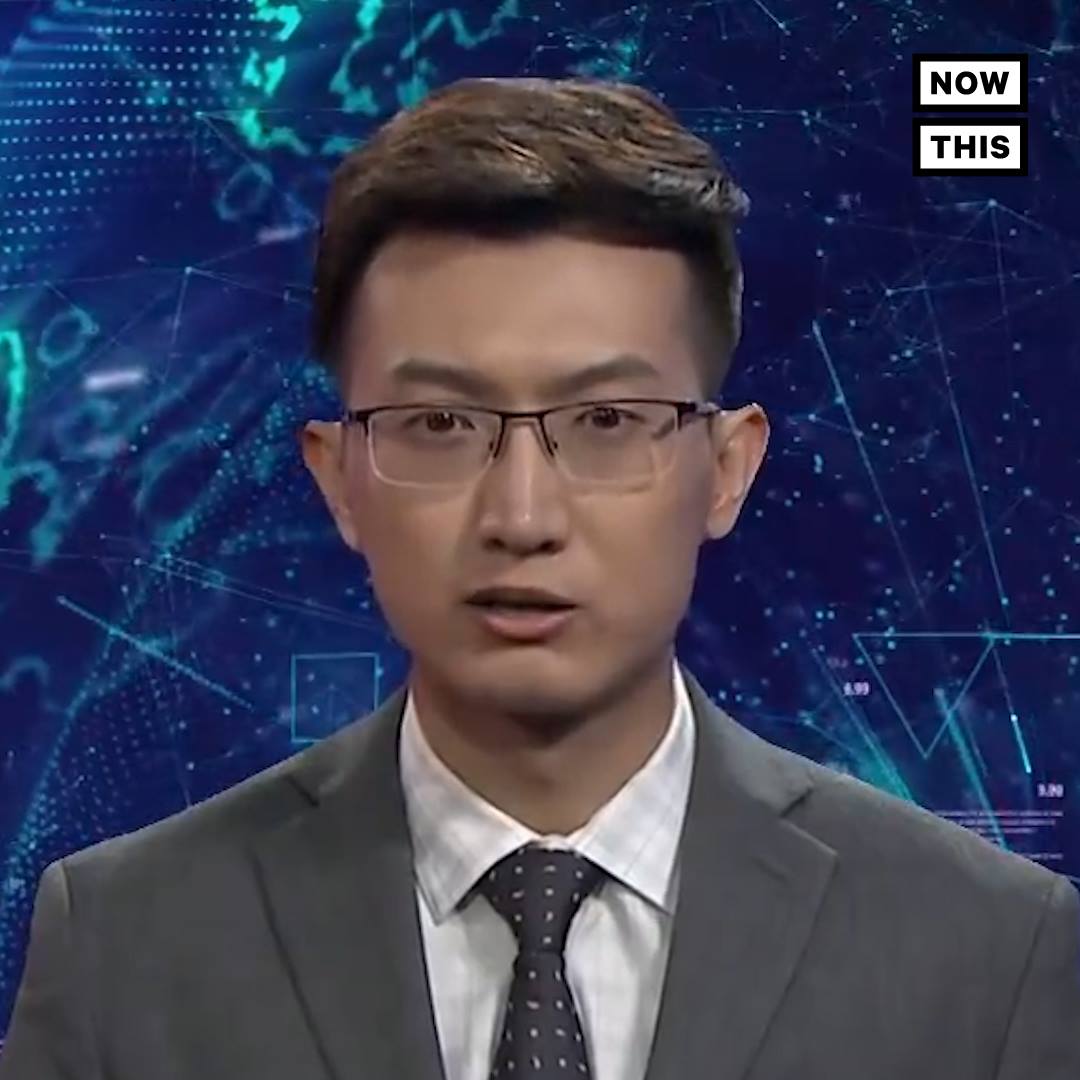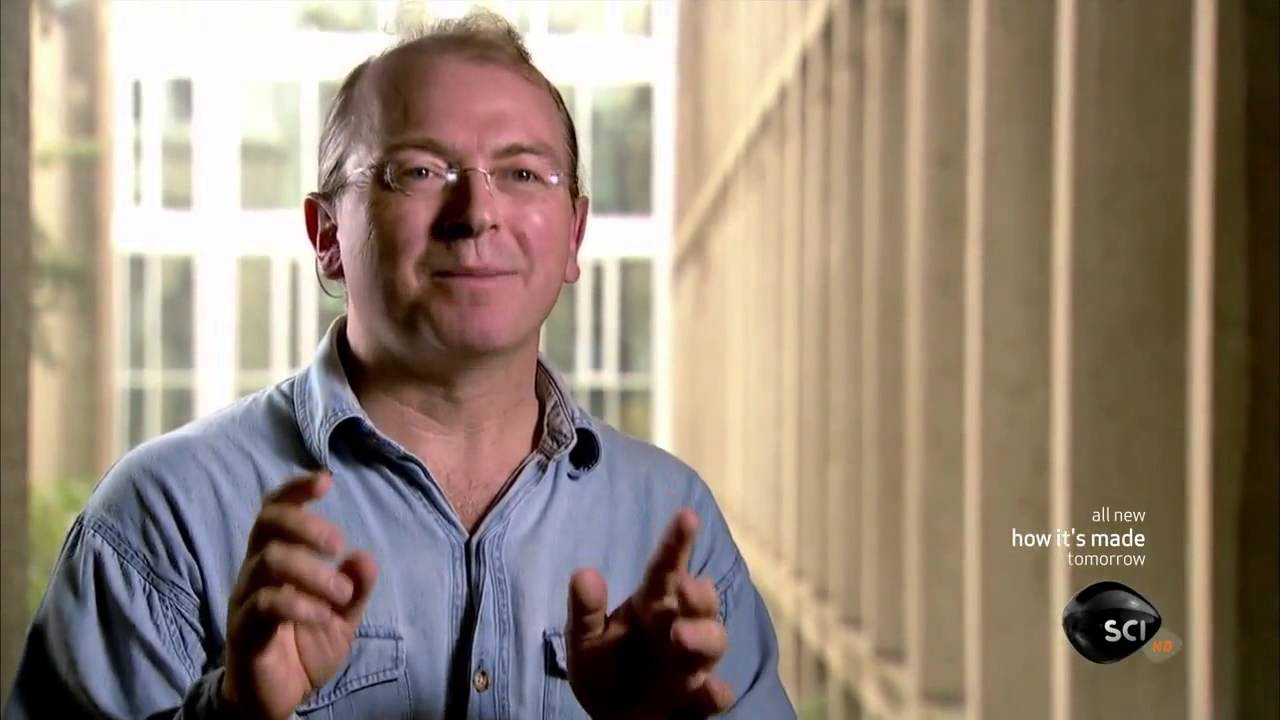A debate over the most efficient way to watch a cult classic TV series’ episodes, in every possible order, lies at the heart of this mathematical breakthrough.
Just got these links: #Transhumanism is covered extensively in this hour long show from Discovery Channel that aired a few weeks ago. My 20-min interview in this program starts at 19 minutes: https://www.discovery.com/tv-shows/expedition-unknown/full-e…-dark-side & the YouTube link: https://www.youtube.com/watch?v=Jiigjw8enQ8
After drinking a mysterious drug concocted by Amazonian shamans, Josh shares exclusive footage and insights into his own life-changing journey to the brink of the afterlife. Josh meets the leader of a movement attempting to beat death through technology.
This paper explores Albert Camus’s notions of the absurd in The Myth of Sisyphus and draws correlations with the movement for indefinite life extension and the big picture of existence.
Calorie vacuums playing in the mud, isn’t that what we are when it comes down to it? We guess our way through much of life, trying not to spend too much time thinking about how trivial it all may or may not be so as to see about keeping the levels of despair down, waiting for our turn on the chopping block… We try to make sense of this life but in the end, can never fully convince ourselves that we have because we never fully do. That challenge is a mountain whose top hasn’t been seen yet.
People are drawn to understand what the most sensible things to do with life are, or as Albert Camus writes “the meaning of life is the most urgent of questions”. It’s a ballpark question. People thirst to make sense of their being, to understand what’s going on, for meaning, to track down and engage the most profound implication. Is thirst proof that water exists, as Gaston Bachelard says? Even rocks mean profound things, and we are self-aware supercomputers in a space filled with variables and has no known walls. It is very improbable that there is not a fundamentally profound implication within such circumstances.
How might we ever make sense of our existence? Masses of people are desperate with this “hope of another life one must ‘deserve’” and often take an irrational “leap”, as Camus says, to “some great idea that will transcend it, refine it, give it a meaning, and betray it.” Many rest on the hope that they’ll land a job they really love and can shine in someday but don’t put serious effort into figuring out what that would specifically be let alone work to make it happen.
People routinely try to correct each other on that issue by saying that work, not hope, builds dreams, yet when they hope that reincarnation, or living a good life, or an evolutionarily consequential life will save them in the eyes of the hypothetical eternal chroniclers, nobody is out there correcting them. You must think it all the way through, work to figure it out and achieve an understanding of it. Hoping and leaping is a distraction from this duty.
Camus explains the leap to us:
“I shall merely analyze here as examples a few themes dear to Chestov and Kierkegaard. But Jaspers will provide us, in caricatural form, a typical example of this attitude. […] He is left powerless to realize the transcendent, incapable of plumbing the depth of experience, and conscious of that universe upset by failure. Will he advance or at least draw the conclusions from that failure? He contributes nothing new. He has found nothing in experience but the confession of his own impotence and no occasion to infer any satisfactory principle. Yet without justification, as he says to himself, he suddenly asserts all at once the transcendent, the essence of experience, and the superhuman significance of life when he writes: ‘Does not the failure reveal, beyond any possible explanation and interpretation, not the absence but the existence of transcendence?’ That existence which, suddenly and through a blind act of human confidence, explains everything, he defines as ‘the unthinkable unity of the general and the particular.’ […]. Nothing logically prepares this reasoning. I can call it a leap.”
” ‘The sacrifice of the intellect’ [-] this effect of the ‘leap’ “
“Husserl aims to make a rational rule: after having denied the integrating power of human reason, he leaps by this expedient to eternal Reason.”
“In truth the way [of leaping] matters but little; the will to arrive suffices.”
People develop a lot of pet coping techniques, leaps. There are some positives in them in that they generate a lot of insight and dig up a lot of leads in the process. A lot of them have come back with invaluable reconnaissance notebooks. Ultimately, we want to go all the way and finish the job though, we want actual realities.
When Friedrich Nietzsche warns us of the revolts of the “mediocre” that tend to take place in the unrestrained and anarchical “tropical tempo in the rivalry of growth, and an extraordinary decay and self-destruction” as he says, the climate of the absurd, in other words, he is warning of being fooled by the communal leap. Can we manage our lives in the absurd jungle without leaping?
“Knowing whether or not one can live without appeal is all that interests me. I do not want to get out of my depth.”
Camus sets off to figure out whether people can live without needing to know or think they know what is going on. It’s a great question. 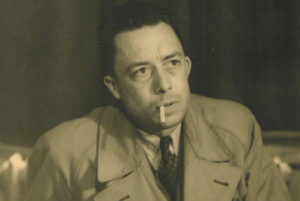
“I know what man wants, I know what the world offers him, and now I can say that I also know what links them.”
Those are hope/nostalgia, absurdity, and irrationality/the brevity of time individuals have.
“And you give me the choice between a description that is sure but that teaches me nothing and hypotheses that claim to teach me but that are not sure. A stranger to myself and to the world, armed solely with a thought that negates itself as soon as it asserts,”
“what is absurd is the confrontation of this irrational and the wild longing for clarity whose call echoes in the human heart.”
We describe and archive the world around us in a lot of ways. At the end of the day though we can’t explain things with surety. Our foundation still eludes us. We still don’t know what is at the bottom of the atoms, at the edge of the universe, in the spark of consciousness, written on the gate that unleashed time, what matters, what’s real or illusion, what’s agreed upon or forced, where we are, who we are, what’s going on, why it’s happening, and all the nuances around, in between and in the realities we can’t even conceive of.
“The absurd is born of this confrontation between the human need and the unreasonable silence of the world. This must not be forgotten. This must be clung to because the whole consequence of a life can depend on it. The irrational, the human nostalgia, and the absurd that is born of their encounter—these are the three characters in the drama that must necessarily end with all the logic of which an existence is capable.”
He’s saying that the mentality to have among the absurd is “That apparent modesty of thought that limits itself to describing what it declines to explain,” How silent is the world and which limits are definitely not surpassable?
”[Absurd is b]eing able to remain on that dizzying crest—that is integrity and the rest is subterfuge.”
That’s right. It’s very important that we stand there. He’s talking about agnosticism, we don’t know what ultimate realities reside in the landscapes of ignorance.
“Now if the absurd cancels all my chances of eternal freedom, it restores and magnifies, on the other hand, my freedom of action. That privation of hope and future means an increase in man’s availability.”
In other words, anarchy within the obstacles of the absurd is the only course we can justify because we don’t know what is going on and have no concrete fundamentals. That is our starting point, lost in a labyrinth, “thought hurls itself into an abstract polytheism”. Does that justify playing in the mud and chasing our tails?
“To the man lost in the world and its diversions this anxiety is a brief, fleeting fear. But if that fear becomes conscious of itself, it becomes anguish, the perpetual climate of the lucid man ‘in whom existence is concentrated’ “, and to whom he is “forever a stranger”.
People who are captives of anarchy and absurdity want to plan escape but are afraid of the consequences and so excuse their captors. They will never know a full life, never know what is going on, forever strangers to their existence.
Why do they do that? To what degree does the desperation and despair found in nothingness and absurdity stem from death? Isn’t the whole problem not lack of meaning or ability to get it, but truncation of time? If humans were biologically immortal then what existential crisis might there be, what leaps might anyone desperately try to make in a world that gets to perpetually reveal the answers to its riddles?
Infinite regress, Descartes’ methods of systematic doubt, Derrida’s door blocks the answer to the question of all questions: ‘How can I make sense of anything without a foundation to start from?’; General Death backed by the Army of Oblivion guards the door. Camus thinks we have to protest the door and shout over the top of the death army at it while at the same time being content to know that this will never accomplish anything. He tells us to appreciate the absurdity for what it’s worth and engage “permanent revolution” against the door without desiring the need to be successful lest we go too far and get our hopes up for nothing.
“That revolt is the certainty of a crushing fate, without the resignation that ought to accompany it.”
“The real effort is to stay there, rather, in so far as that is possible, and to examine closely the odd vegetation of those distant regions. Tenacity and acumen are privileged spectators of this inhuman show in which absurdity, hope, and death carry on their dialogue.”
“what is one to conclude, how far is one to go to elude nothing? Is one to die voluntarily or to hope in spite of everything?”
He cannot even conceive of the notion of taking General Death on. We don’t know if death can be beaten but we do know that it can’t be beaten if we don’t engage it. The movement for indefinite life extension reminds us that, “We don’t have to know we can get there to go there, but we do have to go there to get there.”
“I can negate everything of that part of me that lives on vague nostalgias, except this desire for unity, this longing to solve, this need for clarity and cohesion. I can refute everything in this world surrounding me that offends or enraptures me, except this chaos, this sovereign chance and this divine equivalence which springs from anarchy. I don’t know whether this world has a meaning that transcends it. But I know that I do not know that meaning and that it is impossible for me just now to know it.”
“He seeks his way amid these ruins.”
Since everything can be negated, no sense can be made of anything except for the sense in wanting everything to make sense, and it is impossible to make sense of it with death standing in the way. What should we do then? Find deaths Achilles heel and attack it, that’s your way out of this absurd thicket.
“[They have] not enough imagination to visualize that strange future; that [they are] losing immortal life”
They are distracted by excuses and don’t know why, bowing to the bossy kid’s demands to build a fort out of sticks, just like they spend years bowing to deaths demands to arrange their own burial.
“To abolish conscious revolt is to elude the problem. The theme of permanent revolution is thus carried into individual experience.”
Camus is so close to the path out, if he would have sought the alpha obstacle to the expansion of humanity’s horizons with honesty and courage and engaged it in battle, if he would have turned the power of that revolution on it. He doesn’t elude the door but he does elude the gatekeeper.
The worst of pains that come with winning or failing for a great cause feel better than the best joys accrued in slavery. Facing them comprises the key to happiness, the self-actualization that comes from engaging them makes even the worst kinds of suffering negligible. That fear of death must be used as a catalyst to take it on with fury, not to flee from it into comforting leaps and rationalizations. Personal perfection can only be pursued by eliminating your limitations and as Immanuel Kant tells us, the pursuit of our individual perfection is a duty.
When Camus wrote that the absurd is composed in large part of “the unreasonable silence of the world” to our attempts to understand it, he was confusing a 500 trillion trillion piece puzzle whose pieces have been scattered far and wide with a puzzle whose pieces cannot be found because he didn’t even recognize death as an alpha obstacle. It’s a part of the puzzles whose urgency is priority. He like so many makes the mistake of thinking death is an absolute given, doesn’t even consider it, can’t even see the obstacle when it’s the main one, the Allied invasion we have been putting off, he gave up before he even began. Imagine if Eric the Red, Magellan and Alexander Graham Bell had decided to devote their lives to mud wrestling instead – that’s us.
Camus is right that any riddle we find ourselves submerged in must end with all the logic with which existence is capable and we are capable of a lot more than screaming at the door over the head of death. Once we find the honesty and courage to apply logic to death, realize that it’s a vulnerable target, and turn that revolt on it too, the path that can get us out of the tangles and fogs of absurdity and to the big picture of existence become clearer.
Understanding the big picture requires pioneering everything, the stuff in the atoms, the parts of the universe and what might be beyond, the jungles of the mind, all the things we can’t even conceive of yet, and as much of time as possible, past, present and future, and that practically and inherently takes a lot of time. With success, we would then have a chance to know the totality of what is going on so we can make informed decisions about what we ultimately need and want, or as Ray Keyes calls it, the philosophy of existrophy. To know what we ultimately need and want is the most profound implication of our existence, the place that the Camus’s and leapers of the world would head if they could gain enough bearing in the mazes of the absurd.
Unlike Camus’s absurdist, the existrophist isn’t content to remain on that “dizzying crest” until their time is gone, they agnostically dig through the richness and burn through the glitches, slammed into the back of their drag racing Army of Oblivion slaying, retrofitted universe pioneering F-22 Raptor. If “the theme of the irrational, as it is conceived by the existentialists, is reason becoming confused and escaping by negating itself” and “the absurd is lucid reason noting its limits”, existrophy is the conjuring of the optimal to light with imagination, tracking down its alpha obstacles, and boring through those bedrocks of potential to reach it whether it makes it or not. Death is the next alpha obstacle between us and escaping absurdity and understanding the big picture.
One cannot draw the conclusion that a riddle is unsolvable because a riddle is unsolved. One must mount up, powered with the vitality of purpose, and meet darkness head-on in immortal combat. It’s not guarantee of victory that a person requires to make it worthwhile, it’s the chance that is there in the thrill of the fight, the fulfillment in rising to the challenge. Enough focus and determination make the bullseye look like 99% of the board, naturally attracting people-power, resources, electric charge and momentum from all around.
Cellular engineering is General Death’s Achilles heel. Death is the effects of the damage that accumulates in and around our cells, and people engineer cells in all kinds of ways every day. Our knowledge, insights, and skills in doing it keep getting better, the number of kinds of ways we can do it continue to increase, and our toolbox for working on it constantly grows and expands at an accelerating rate. What are we going to do, get worse at it over time? We will become the master mechanics of our biology.
That happens sooner than later with your participation, and all you have to do is help beat the drum. The bigger this parade of support, the faster people will come to contribute to it in all the ways it takes to get this done. So, if you can’t do experiments, beat the drum, it’s just as important. If you need help then all the information, organizations, projects and everything is on Facebook at /movementforindefinitelifeextension. Send us a message on the page there if you need anything.
“The workman of today works every day in his life at the same tasks, and his fate is no less absurd. But it is tragic only at the rare moments when it becomes conscious. Sisyphus, proletarian of the gods, powerless and rebellious, knows the whole extent of his wretched condition: it is what he thinks of during his descent [when his boulder rolls down the mountain and he is returning to it to roll it back up]. The lucidity that was to constitute his torture at the same time crowns his victory.”
It is only tragic when people are NOT conscious of it. When they do think about it and it causes them grief, that is a healthy process telling them that there is something there that needs changing. One only ignores it if they think they are powerless and give up, but they are not powerless. Again, an unsolved mystery does not make a mystery unsolvable, and hard work is not an excuse to run away, even if it is constantly worked at for 10,000 years by 10 billion people and still not solved. There is not a lot of time for chasing our tails when there is so much work to get done. Like Tim Ferriss says, “Being busy is a form of laziness — lazy thinking and indiscriminate action.” It cannot be concluded that ‘all of our hopes of eternal freedom are canceled’.
“One must imagine Sisyphus happy.”
Happiness is what the freshmen of life think we should pursue – self-actualization, from working for a transcendent cause, is happiness on steroids. One must hope that Sisyphus never gives up working for a way through to understanding of it all or dies in the process.
“If one could only say just once: ‘This is clear,’ all would be saved. But these men vie with one another in proclaiming that nothing is clear, all is chaos, that all man has is his lucidity and his definite knowledge of the walls surrounding him.”
I agree, existrophy is clear: We need to want to know what we ultimately need and want because it’s a contradiction to not need and want what we need and want, and we can’t get that unless we beat death and pioneer the big picture. Traveling the path to it is worth it whether anybody makes it or not.
“If thought discovered in the shimmering mirrors of phenomena eternal relations capable of summing them up and summing themselves up in a single principle, then would be seen an intellectual joy of which the myth of the blessed would be but a ridiculous imitation.”
And that principle is existrophy.
Whoa.
NASA just released this new close-up photo of the swirling clouds found on Jupiter. It was captured by the Juno spacecraft on October 29th, 2018, during its 16th close flyby of the gas giant.
The clouds in the photo were seen in Jupiter’s North-North Temperate Belt (NNTB), one of the distinct cloud bands.
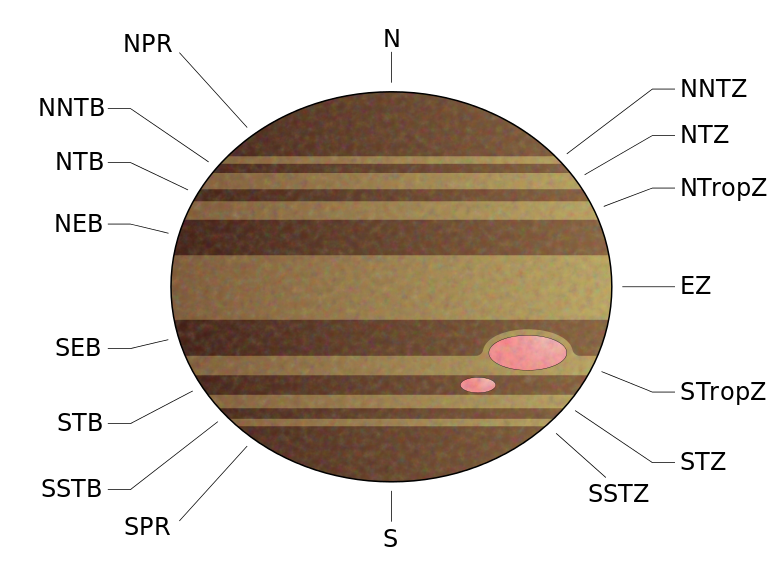
The technology and innovation that Alibaba has developed to serve the needs that arise from Singles’ Day have allowed Alibaba to expand into a variety of services, including Alibaba Cloud, logistics, and artificial intelligence.
Within minutes of the clock striking midnight on November 11 this year, consumers across China will be racking up billions in purchases on Alibaba’s e-commerce marketplaces. Alibaba engineers and employees watching the transaction numbers on big screens will whoop as the figure instantly crosses the hundred million yuan mark, then zooms into the billions.
As the orders start to roll in, the company’s proprietary cloud computing platform Alibaba Cloud will, at its peak, process hundreds of thousands in transactions and payments per second. Robots in the automated warehouses of Alibaba’s logistics arm Cainiao will begin sorting and packing the orders that come in, readying them for the battalion of trucks, scooters and millions of deliverymen that will send an estimated 1 billion packages to their rightful owners within days of November 11.
For China’s largest e-commerce firm, Singles’ Day is not just its most important shopping event of the year. It is also the day that the Alibaba pushes the boundaries on its technology and services, stress-testing its technology systems during the world’s largest shopping festival that grows in scale every year.
Scientists are planning to create a network in the Chicago area tapping the principles of quantum physics. The idea is to prove that quantum physics could provide the basis for an unhackable internet.
This, they say, could have wide-ranging impact on communications, computing and national security.
The quantum network development, supported by the US Department of Energy (DOE), will stretch between the DOE’s Argonne National Laboratory and Fermi National Acceleratory Laboratory, a connection that is said will be the longest in the world to send secure information using quantum physics.
I think aspects of our Universe are conscious. Dark matter or the æther perhaps. Stagnancy is death so change inherently means something is making decisions.
A new scientific concept has recently come to light, which scientists are calling “panpsychism.” Panpsychism says that the universe could be capable of consciousness, which could change everything.
For quite some time, scientists have been working to understand the universe, where it came from, and why we are here. However, they have often come up short until now. The scientist responsible for such a notion is Gregory Matloff, and his ideas are shocking, to say the least.

